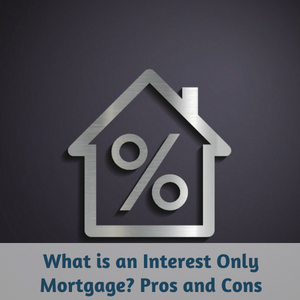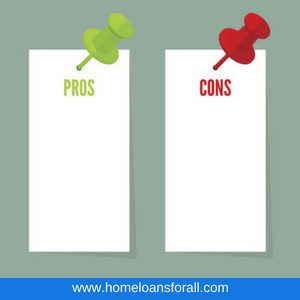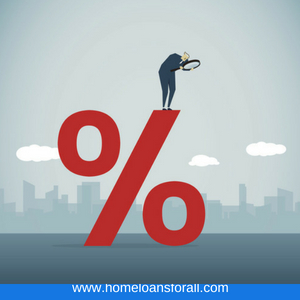 If you are trying to make a decision on whether to take a mortgage or not, one of the key decisions that you will need to make is on whether to take the mortgage on an interest-only basis or a repayment basis. If you are getting a mortgage that has higher interest, you will be required to repay on a monthly basis the interest to the lender as well as part of the capital debt. During the course of the mortgage term, you will chip away the debt of the mortgage before finally repaying it.
If you are trying to make a decision on whether to take a mortgage or not, one of the key decisions that you will need to make is on whether to take the mortgage on an interest-only basis or a repayment basis. If you are getting a mortgage that has higher interest, you will be required to repay on a monthly basis the interest to the lender as well as part of the capital debt. During the course of the mortgage term, you will chip away the debt of the mortgage before finally repaying it.
What is an interest only mortgage?
In an interest-only mortgage, the borrower only pays the mortgage’s interest through some monthly repayment for a term fixed on the interest-only of the mortgage loan. This term can be for a period of 5 to 7 years. After the term has elapsed, many choose to refinance their homes, making a lump sum payment. Alternatively, they choose to start making payment on the principal amount. However, during the payment of the principal, there is a significant increase in the payments.
Therefore, when a borrower chooses to go with the interest-only mortgage, he will only pay the mortgage interest and for a fixed period of time. This could be for a period of 5 to 7 years. Once that term has passed, many choose to refinance their homes, make a payment in its lump sum or start to pay off the principal amount. However, when you are paying off the principal, the payment will start to decrease in a significant way.
In case you choose a home loan on the basis of interest only, you will be paying the full interest to the lender during the full term and in the end, you will only owe the money you borrowed. If you are a prudent borrower, you can choose to open an investment vehicle where you can be adding money every month with the hope that this will grow to the point where it will be possible for you to repay your debt. There isn’t a guarantee that this method may work as it might leave you with a shortfall that you may need to make up for. You might even be left with a surplus.
In the past, many mortgage customers were relying on taking a mortgage on the interest-only basis. Their goal was to rely on the increase in house prices to make it possible for them to sell the property and even pay off the mortgage at the term’s end. However, in the recent past, we have seen prices of houses going down and this is a proof that there is no guarantee that the prices of houses will keep on rising.
Who should choose an interest-only mortgage?
There are certain situations when you may opt for an interest-only mortgage. These include:
- If you have a desire to afford a bigger home
- You understand that there is a need to sell the home within a short period of time
- If you would like the initial payment to be lower and you got the confidence to deal with the huge increase in payment in future.
- You are quite certain that you can get a rate of interest that is significantly higher if you invest the amount elsewhere
Pros of interest-only mortgage
 Every type of mortgage comes with its pros and cons. Some of the benefits of an interest-only mortgage include:
Every type of mortgage comes with its pros and cons. Some of the benefits of an interest-only mortgage include:
- You will pay monthly installments that are significantly lower during the term
- You can manage to buy a bigger home later as you can qualify for a loan amount that is bigger
- You place some extra money into investments and these can go a long way in building your net worth
- The amount that you pay during the interest-only duration will be a tax deductible.
Cons of the interest-only loans to the interest
There are certain drawbacks for choosing the interest-only mortgage. These cons include:
- Rising rate of mortgage increases the risk particularly if its an adjustable rate mortgage(ARM)
- Most people spend the extra money rather than investing it
- Most borrowers are unable to afford the principal amount once the interest-only period elapses. Most do not even have the discipline to pay some extra amounts towards the mortgage
- Unlike what many people think, the home may fail to appreciate as fast as you had envisaged
 Other interest-only risks
Other interest-only risks
- It can be risky trying to focus on the ability to make the interest only repayment. This is because you will eventually be required to pay the interest on top of the principal each month. After this has happened, you may be left with what is commonly referred to as a payment-shock. Unless you put your money into an additional vehicle or you sell the property, it may be difficult for you to repay the debt at the end of your term.
- You may be in a position to prevent the payment shock that results at the end of the interest-only mortgage. Unfortunately, it is not possible to predict the interest rates that will be applicable after 10 years. This means that if the loan amount is able to grow into a figure that is higher than the value of the home, it may not be possible to refinance.
- There are mortgages that come with the interest-only plans and can carry a penalty if the borrower chooses to prepay. In case the loan gets refinanced during the period of refinancing, the borrower can end up having additional fees. You will need to check with the lender to determine if there is such a fee that applies.
- The value of the home may be lower than the amount due on the mortgage or it may even depreciate faster if there is a decrease in the housing prices.
Consider these pros and cons before choosing an interest-only mortgage. In order to make the right choice, you can contact mortgage advisers.











